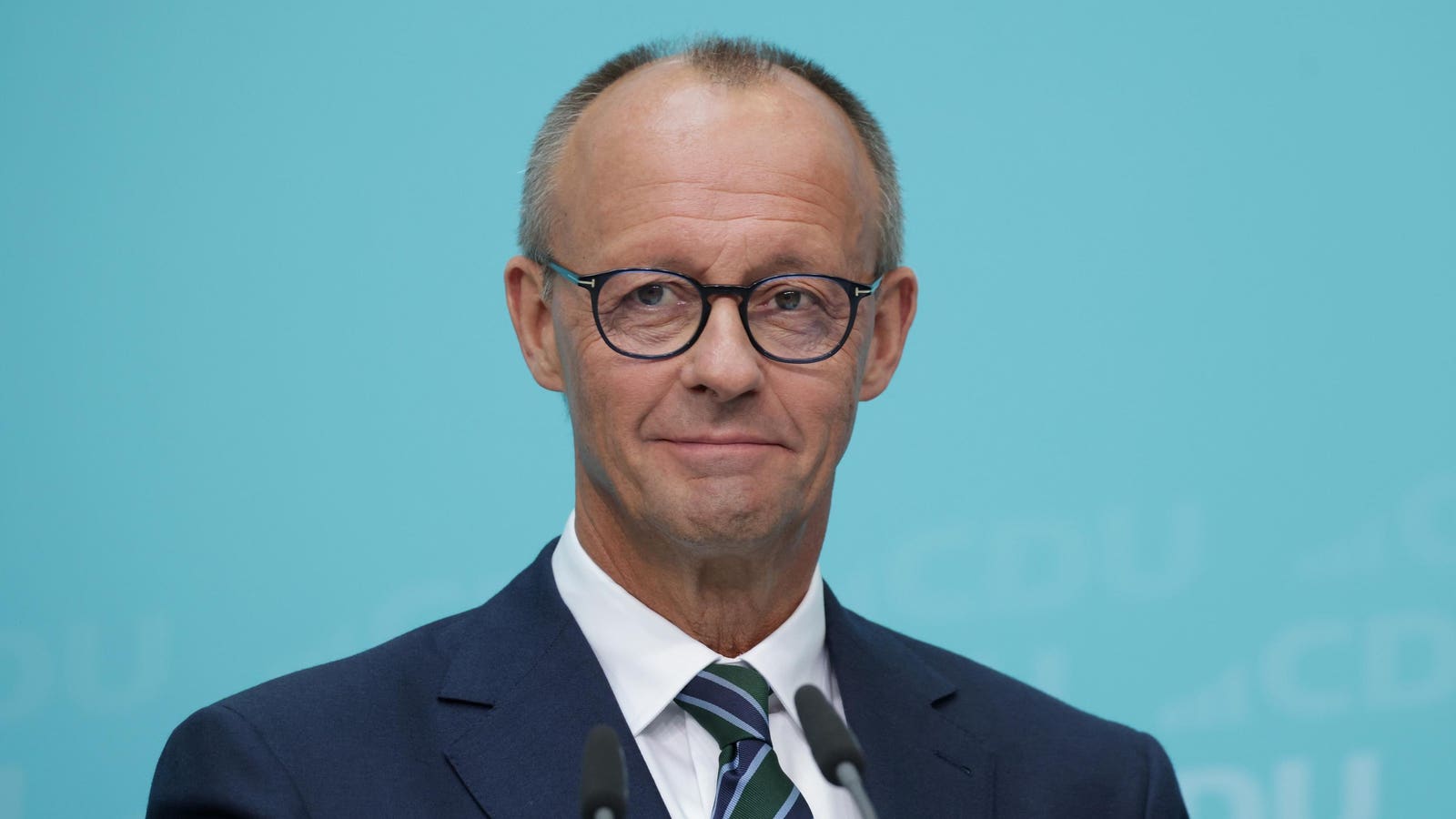Money
Merz On Course To Become Next German Chancellor

The German Elections: A New Political Landscape Emerging
With just two weeks left until Germany’s federal elections on February 23, the political landscape is taking shape, and the polls are signaling a clear lead for the Christian Democratic Union (CDU). The CDU, under the leadership of Friedrich Merz, is currently polling at 31%, solidifying its position as the frontrunner. Meanwhile, the far-right Alternative for Germany (AfD) has surged to 21%, though its chances of entering government remain virtually nonexistent due to its political isolation. On the other hand, the Free Democratic Party (FDP) and Sahra Wagenknecht’s party are hovering dangerously close to the 5% threshold required for parliamentary representation, raising concerns about their political futures.
The Social Democratic Party (SPD), currently polling at 15%, is emerging as a critical swing factor in the election. While the SPD has traditionally been a major player in German politics, its declining support could significantly influence the formation of the next government. The party’s voters, along with those of the CDU, are increasingly signaling their preference for a CDU-FDP coalition as the most viable path forward. This alignment reflects a broader consensus among voters about the direction the country should take, with economic and fiscal stability appearing to be key priorities.
Merz vs. Scholz: A Televised Debate and the Battle for Leadership
Last weekend, the political spotlight shifted to the first televised debate between Chancellor Olaf Scholz of the SPD and CDU leader Friedrich Merz. The debate, while polite by international standards, revealed stark differences in the candidates’ performances. Scholz appeared defensive, particularly on issues related to Ukraine and the economy, whereas Merz presented himself as more confident and dynamic. Merz’s stronger showing has likely bolstered his image as a capable alternative to the incumbent chancellor.
The tone of the debate also highlighted the possibility of a future coalition between the CDU and the SPD. Despite their ideological differences, the two parties have a history of collaboration, and the civility displayed during the debate suggests that such a partnership remains on the table. However, Merz’s performance has further solidified his position as the candidate to watch, with many pundits now predicting that he will succeed Scholz as Chancellor.
Economic Reforms and the Debate Over Germany’s Debt Brake
One of the most significant takeaways from the debate was Merz’s indication that the CDU might relax Germany’s debt brake, a fiscal rule that limits government borrowing. While the debt brake has been a cornerstone of CDU policy, its strict constraints played a role in the collapse of the previous government. Merz’s willingness to revisit this policy reflects a pragmatic recognition of the challenges facing the German economy, particularly in light of the ongoing conflict in Ukraine and the need for increased defense spending.
The push for greater defense expenditure has gained momentum in recent days, with the chairman of the Bundestag defense committee, a member of the FDP, advocating for military spending to reach 3% of GDP. This proposal aligns with the CDU’s platform, which emphasizes the need for a stronger military. As the election approaches, defense spending is likely to become a central issue, especially if Germany is called upon to contribute to a peacekeeping force in Ukraine.
The Economic and Political Challenges Ahead
The prospect of a peace deal in Ukraine could bring much-needed relief to Germany’s economy, which has been battered by the conflict. However, the potential for Germany to play a major role in post-war reconstruction and peacekeeping efforts will undoubtedly place additional strain on its resources. This raises important questions about how the next government will balance its domestic and international obligations, particularly in light of the significant challenges ahead.
From tariffs on European goods to the need to restructure critical industries like automotive manufacturing, the incoming government will face a daunting agenda. These challenges underscore the importance of having a leader with a clear vision and the political will to implement necessary reforms. With Merz’s proposed immigration plan already generating controversy, it is clear that he is prepared to tackle difficult issues head-on. His ability to do so will largely determine the success of his tenure as Chancellor.
The Road to a New Government: Coalitions and Cabinet Battles
Assuming Merz becomes Chancellor, attention will quickly shift to the composition of his cabinet and the speed at which it can act. One key question is whether the SPD will retain any influence in the next government, particularly if its support dips below 15%. Defense Minister Boris Pistorius is often mentioned as a potential successor to Scholz, should the SPD’s performance fall short of expectations.
Behind the scenes, there are already signs of jockeying for power within the CDU and its sister party, the Christian Social Union (CSU). The two parties, representing different regions of Germany, are known for their internal debates, and their alignment on key policies will be crucial to the stability of the next government. As the election draws closer, these dynamics will take center stage, shaping the political landscape for years to come.
Conclusion: Merz’s Rise and the Promise of Reform
The coming weeks will be pivotal for Germany’s political future. Friedrich Merz appears poised to lead the CDU to victory, and his election as Chancellor could usher in a new era of economic and military reform. While the scope of his ambitions is not yet fully clear, his willingness to challenge taboos and embrace controversial policies suggests that he is ready to take bold action.
The potential for an “animal spirits rally” in the economy following his election, driven by renewed confidence and investment, is an underestimated but significant factor.Merz’s ability to deliver on his promises will depend on his capacity to navigate the complexities of coalition politics and address the manifold challenges facing Germany. As the country approaches a crossroads, one thing is certain: the outcome of this election will have far-reaching consequences for Germany, Europe, and the world.


















